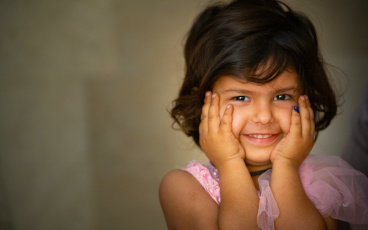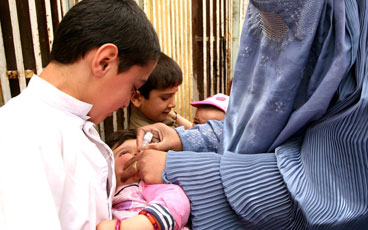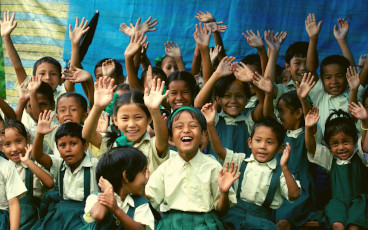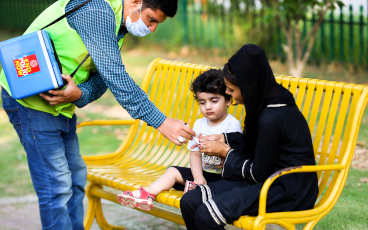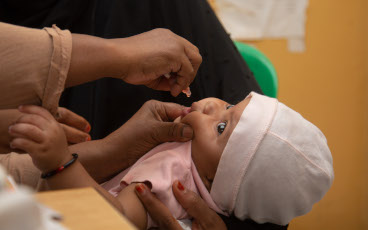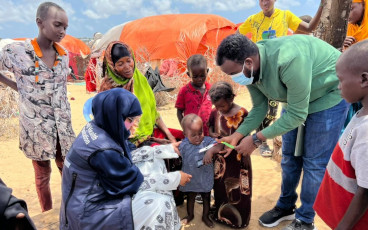On the Cusp of Eradication
A global polio communication package to help equip countries with the strategies and tools to finish polio
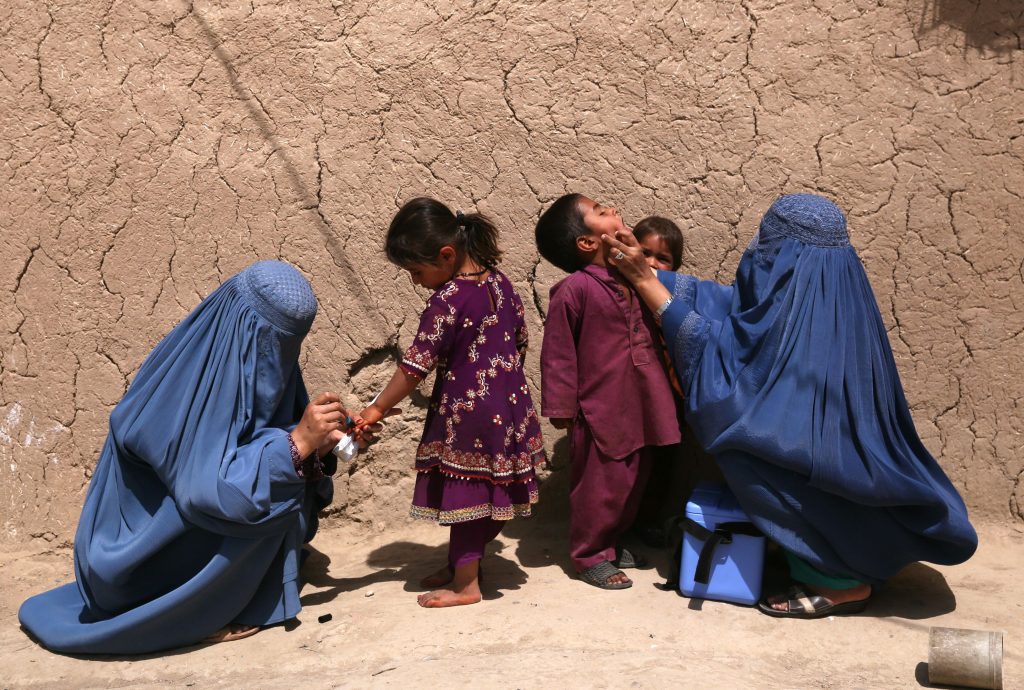
Community acceptance of polio vaccines is the highest it has ever been and in 2016, the fewest number of children in history were paralyzed by wild poliovirus. Attaining this level of acceptance has depended on decades of sustained community cooperation and engagement, building and maintaining trust in some of the most challenging environments and complex social contexts in the world.
With polio on the ropes, but still surviving in three endemic countries and the risk of new outbreaks ever-present, UNICEF, as part of the Global Polio Eradication Initiative (GPEI), has produced a global communication strategy to equip country teams with a how-to-manual for planning and building effective communication strategies that can be quickly adapted to suit local country contexts.
The strategy is designed for countries facing any of the three different scenarios for polio transmission: 1) Outbreak; 2) Enduring Outbreaks/Endemics; 3) and Maintenance, with planning guidelines for all three scenarios, as well as valuable tools, analysis and draft communication materials, messaging and products which are available to support polio-endemic and new outbreak countries alike.
“The global strategy synthesizes decades of eradication knowledge and experience and makes it available to polio eradicators wherever they work and whoever they work for,” said Reza Hossaini, Director of Polio Eradication at UNICEF Headquarters in New York. “The package will ultimately help to improve quality, maintain public confidence in polio vaccination, identify barriers which contribute to under vaccinated children while building the capacity of vaccinators and frontline workers in countries critical for global eradication.”
From data to action
Previous polio communication strategies often focused on risk communication and targeted caregivers with facts about polio and polio vaccination. The new strategy is specifically designed to move from a focus on the individual’s knowledge and sense of individual risk to addressing broader community perceptions and social norms.
At the core of the approach is an emphasis on missed children and a standardized collection and analysis of social data from at-risk countries. The strategy continually emphasizes the need for a sophisticated understanding of community perception, attitudes and knowledge at the centre of all social and behavioural change communication work and increasingly for it to be seen as a critical component to covering more children with the vaccine.
A partnership between UNICEF and Harvard University’s Opinion Research Program has significantly improved the programme’s ability to access quality data to understand attitudes and perceptions about polio vaccination in communities most at risk for infection. This information has provided actionable insights from seven high-risk countries (Afghanistan, Pakistan, Nigeria, Somalia, DRC, India and Uganda), which directly inform communication strategy design, channel selection and messaging.
Significantly, the data has not only increased the ‘Communication for Development, or C4D’ contribution to quality polio vaccination campaigns, but revealed a critical and often overlooked focus of polio campaigns: the health worker and the all-important moment at the doorstep when caregivers decide to accept or reject the vaccine.
Sherine Guirguis, Senior Communication Manager for Polio, UNICEF New York said research and evidence formed the backbone of the global strategy: “The investment in social data has greatly improved the programme’s ability to identify challenges linked to the regular acceptance of polio vaccine and given us new insights, especially on the importance of community trust in the vaccine, the programme and most importantly the vaccinator herself.”
To support this, WHO and UNICEF have jointly developed a global vaccinator training curriculum featuring materials in three languages for master trainers, supervisors and the vaccinators themselves. With an emphasis on participatory learning, leadership and motivation, the recently-launched curriculum provides the GPEI for the first time with a global standard of high quality, technically-accurate frontline worker training materials for country adaptation and use.
An online toolkit
Rhizome by GPEI brings together all this quality guidance and tools for responding to polio outbreaks and designing communication for development (C4D) strategies. These materials – including the global communication strategy and standardized training package, form a platform to help deliver the guidance, tools, and materials to help polio eradicators build trust among communities and finally wipe polio from the earth.
WHO focal point for communication Tom Moran, said Rhizome by GPEI outlined in practical terms how communications can better support operations in effectively reaching every last child for polio vaccination. “This package builds on the work and lessons of more than 20 years of communication for polio eradication experience. Having this readily available will help equip polio-affected countries, and in particular those facing new outbreaks, to respond quickly and effectively in this final phase of eradication.”
For more information on the strategy, the toolkit and training package, contact Michael Coleman, C4D Specialist, Polio: mcoleman@unicef.org


